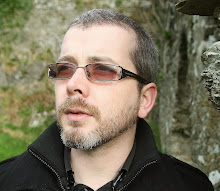In reading Alex Wheatle’s The Dirty South, I was struck time and again by the similarities between Brixton and West Belfast. Brixton, in south London, is an area of social deprivation, portrayed as a deeply divided community in the novel. The Jamaicans distrust the Africans, neither have any time for the Asians, and the Muslim kids...? Suddenly the plot of The Dirty South becomes less about geography and more about religion. Though it’s not necessarily the truly religious who cause the problems, but those adopting the guise to suit their own purposes. Sound familiar? In simple terms, Belfast is a city working through a terrible history of religious division, and Brixton seems to have had a taste of that too. And there’s more. In 1981 the Brixton riot saw 279 police and 45 civilian injuries. It’s estimated that 5000 people were involved in the violence. West Belfast in 1981, the time of the Hunger Strikes, was no stranger to rioting. And both of these urban areas have suffered and will continue to suffer from high levels of street crime.
Naturally, the book caught my interest.
The story is set in the early 00’s through to 2006 and follows a chunk of Dennis Huggins’ teenage life. Dennis is a young black Brixtonian of Jamaican descent. He’s just a little more privileged than those around him as his mother works full time at a good job and brings in enough money to buy Dennis and his sister designer clothes. His father is also still on the scene and is a constant source of ‘lectures’ designed to keep Dennis on the straight and narrow. Unfortunately, Dennis is all too aware of his father’s shadowy past and the allure of becoming a shotta (drug dealer) tugs at him. But for Dennis, dealing drugs seems to be less about bringing in money and more about gaining respect from the ‘ghetto’ kids he hates and idolises in equal measure.
Although I began to find the protagonist a bit annoying by the middle of the book, I warmed to him again in the second half. Dennis swings between arrogance and self pity for most of the narrative but only really seems to find himself when the big twist comes. As far as twists go, this one is pretty expected, but I’ll refrain from telegraphing it for you. Just know that the protagonist only really comes into his own when he has to. I find myself wondering if this was Wheatle’s intent. If so it was a risky one, as I almost put the book down in favour of one of the other anticipated reads on my stack. But I’m glad I didn’t. The novel ends well, with a certain type of justice that I suspect will satisfy most. I’d have axed the epilogue, though.
The Dirty South is a gritty slice of London street crime and a master class in social deprivation. Alex Wheatle has lived this life (and served some time for his part in the Brixton riot), so you can be assured that it’s all authentic stuff. I loved the little lessons in hip hop and the Brixtonian street lingo that filtered through the prose. I wouldn’t hesitate to recommend this one, and will certainly be on the lookout for more from Wheatle, especially East of Acre Lane which is set in 1981.



7 comments:
I think I would axe epilogue's in most books. Sometimes an untidy ending will do the trick as opposed to wrapping everything up in a tight bow
Keith - I'd say you're right, but with a mild disclaimer. The current version of my first novel includes one. Might not stay, though...
gb
The funny thing about epilogues in my experience is that we end a book wanting to know what happened later, but usually feel disappointed when the author actually tells us. I'm not even sure if it so much about tying up the loose ends, because you can often do that without an epilogue. I think it's the change in tone, and the way they tend to take you out of the story in a sort of reporting style. So maybe an epilogue that stayed in the story but just occurred at a later point in time could work, particularly if there was some little twist in it.
Wheatle's book sounds intriguing. For some reason it reminds me of a play I saw by chance in London a couple of years ago, and I've tried to retrieve the title. It wasn't a crime story but it was about an immigrant community in one of the tougher London suburbs. Not sure if they were Jamaicans and not sure if it was Brixton, though. But it's going to bug me.
Seana - Yeah, totally agree with you on the epilogue thing, and in this case I think that the switch in POV (the only switch in the whole book) made it stand out as totally disposable. In my opinion, anyway. Also, the preceding chapter did a good job of tying up most of the loose ends...
But I've seen instances in which epilogues work.
Hope you figure out the name of the play.
Cheers
gb
I wanna read this, R at ST was telling me that it was much like 'The Wire'
Hi Gordon - Sorry, I almost missed this comment.
Yeah, I can see where R is coming from with that, though I think TDS is more about why somebody would become a dealer as opposed to the hows of the Barksdale crew plot in The Wire.
Do you have a copy?
Cheers
gb
I have realized how dirty South is.
The fact of the matter is that I see you are such a piece of artist, then please keep posting this kind of concerning matters. Gerard Brennan and his work rock!
Post a Comment